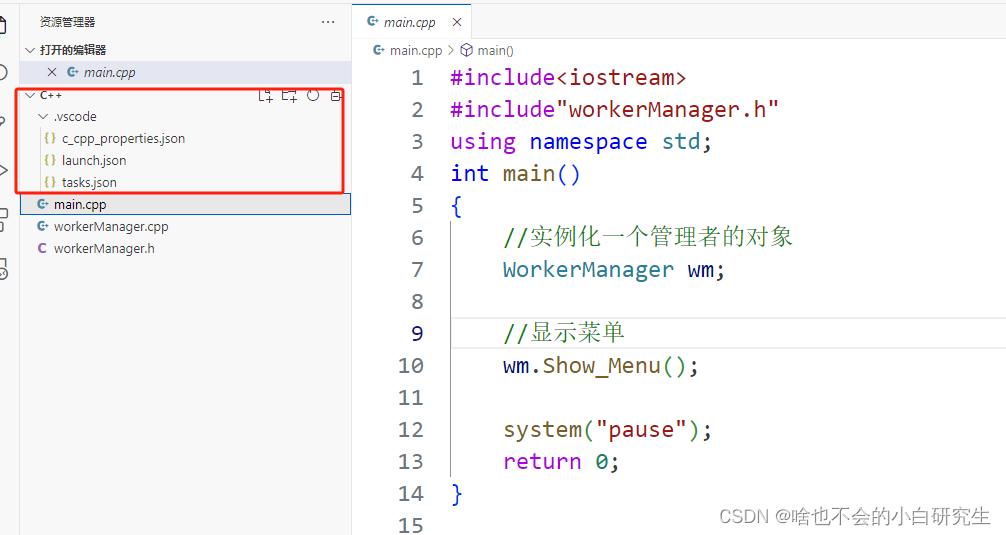2300. Successful Pairs of Spells and Potions
You are given two positive integer arrays spells and potions, of length n and m respectively, where spells[i] represents the strength of the
i
t
h
i^{th}
ith spell and potions[j] represents the strength of the
j
t
h
j^{th}
jth potion.
You are also given an integer success. A spell and potion pair is considered successful if the product of their strengths is at least success.
Return an integer array pairs of length n where pairs[i] is the number of potions that will form a successful pair with the
i
t
h
i^{th}
ith spell.
Example 1:
Input: spells = [5,1,3], potions = [1,2,3,4,5], success = 7
Output: [4,0,3]
Explanation:
–0
t
h
0^{th}
0th spell: 5 * [1,2,3,4,5] = [5,10,15,20,25]. 4 pairs are successful.
–1
s
t
1^{st}
1st spell: 1 * [1,2,3,4,5] = [1,2,3,4,5]. 0 pairs are successful.
–2
n
d
2^{nd}
2nd spell: 3 * [1,2,3,4,5] = [3,6,9,12,15]. 3 pairs are successful.
Thus, [4,0,3] is returned.
Example 2:
Input: spells = [3,1,2], potions = [8,5,8], success = 16
Output: [2,0,2]
Explanation:
–0
t
h
0^{th}
0th spell: 3 * [8,5,8] = [24,15,24]. 2 pairs are successful.
–1
s
t
1^{st}
1st spell: 1 * [8,5,8] = [8,5,8]. 0 pairs are successful.
–2
n
d
2^{nd}
2nd spell: 2 * [8,5,8] = [16,10,16]. 2 pairs are successful.
Thus, [2,0,2] is returned.
Constraints:
- n == spells.length
- m == potions.length
-
1
<
=
n
,
m
<
=
1
0
5
1 <= n, m <= 10^5
1<=n,m<=105 -
1
<
=
s
p
e
l
l
s
[
i
]
,
p
o
t
i
o
n
s
[
i
]
<
=
1
0
5
1 <= spells[i], potions[i] <= 10^5
1<=spells[i],potions[i]<=105 -
1
<
=
s
u
c
c
e
s
s
<
=
1
0
10
1 <= success <= 10^{10}
1<=success<=1010
From: LeetCode
Link: 2300. Successful Pairs of Spells and Potions
Solution:
Ideas:
-
Sort the Potions Array: First, sort the potions array in non-decreasing order. This step is crucial for the binary search to work.
-
Binary Search Function: Implement a binary search function that returns the number of potions that, when multiplied by the current spell’s strength, meet or exceed the success threshold.
-
Allocate Memory for the Result Array: Allocate memory for the result array pairs which will store the count of successful pairs for each spell.
-
Iterate Over Spells and Apply Binary Search: For each spell, apply the binary search on the sorted potions array to find how many potions can form a successful pair with it.
-
Return the Result: Update the returnSize to be equal to spellsSize and return the pairs array.
Caode:
// Comparator function for qsort
int compare(const void *a, const void *b) {
return (*(int*)a - *(int*)b);
}
// Binary search to find the number of successful pairs
int findSuccessfulPairs(int spell, int* potions, int potionsSize, long long success) {
int left = 0, right = potionsSize - 1, count = 0;
while (left <= right) {
int mid = left + (right - left) / 2;
if ((long long)spell * potions[mid] >= success) {
count = potionsSize - mid;
right = mid - 1;
} else {
left = mid + 1;
}
}
return count;
}
int* successfulPairs(int* spells, int spellsSize, int* potions, int potionsSize, long long success, int* returnSize) {
// Sort the potions array
qsort(potions, potionsSize, sizeof(int), compare);
// Allocate memory for the result array
int* pairs = (int*)malloc(spellsSize * sizeof(int));
if (!pairs) return NULL; // In case malloc fails
// For each spell, find the number of successful pairs using binary search
for (int i = 0; i < spellsSize; i++) {
pairs[i] = findSuccessfulPairs(spells[i], potions, potionsSize, success);
}
// Set the return size
*returnSize = spellsSize;
return pairs;
}
原文地址:https://blog.csdn.net/navicheung/article/details/136035425
本文来自互联网用户投稿,该文观点仅代表作者本人,不代表本站立场。本站仅提供信息存储空间服务,不拥有所有权,不承担相关法律责任。
如若转载,请注明出处:http://www.7code.cn/show_67211.html
如若内容造成侵权/违法违规/事实不符,请联系代码007邮箱:suwngjj01@126.com进行投诉反馈,一经查实,立即删除!




![[软件工具]文档页数统计工具软件pdf统计页数word统计页数ppt统计页数图文打印店快速报价工具](https://img-blog.csdnimg.cn/direct/09dfbaff3e9a47a9a551dd65fef5d482.jpeg)

